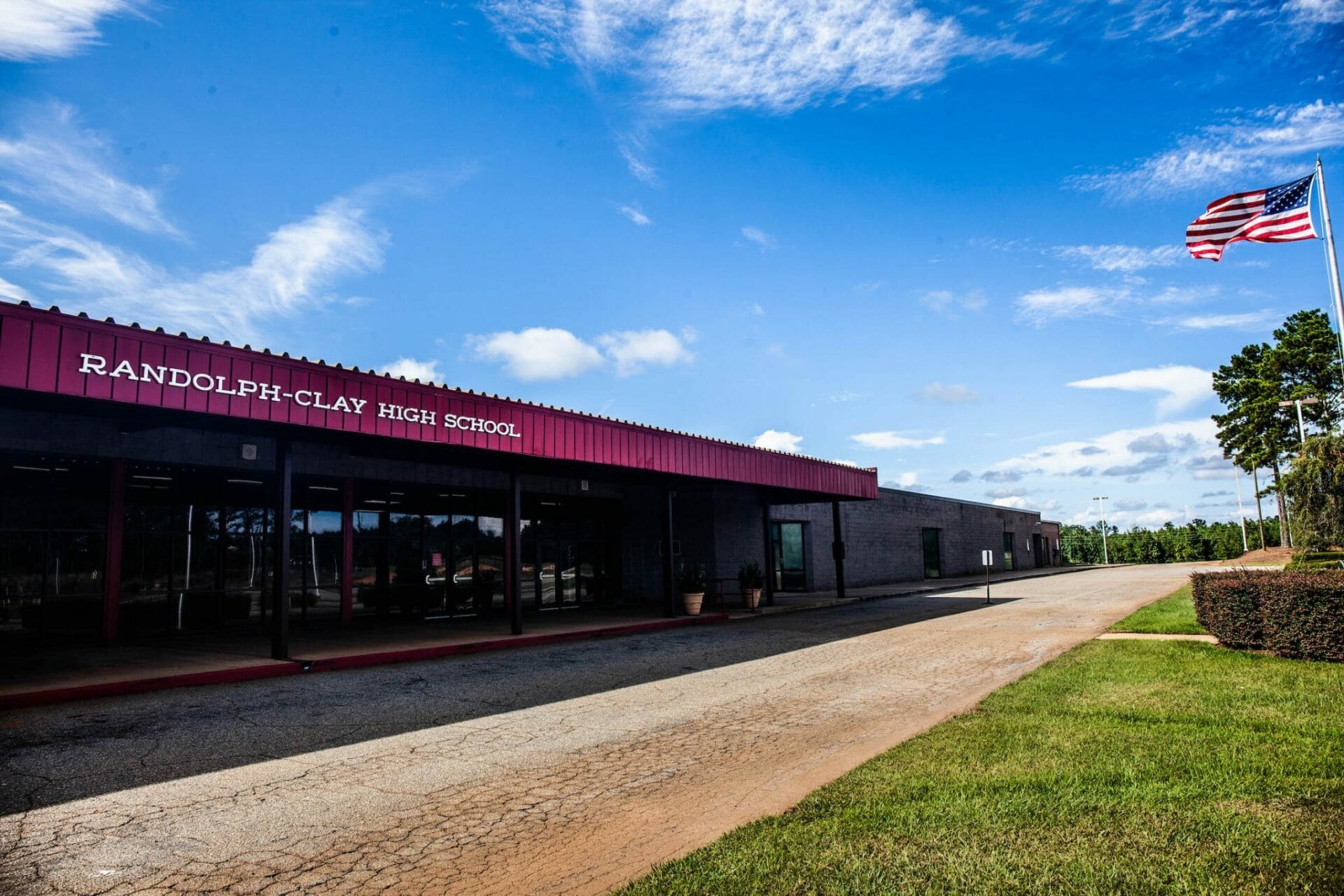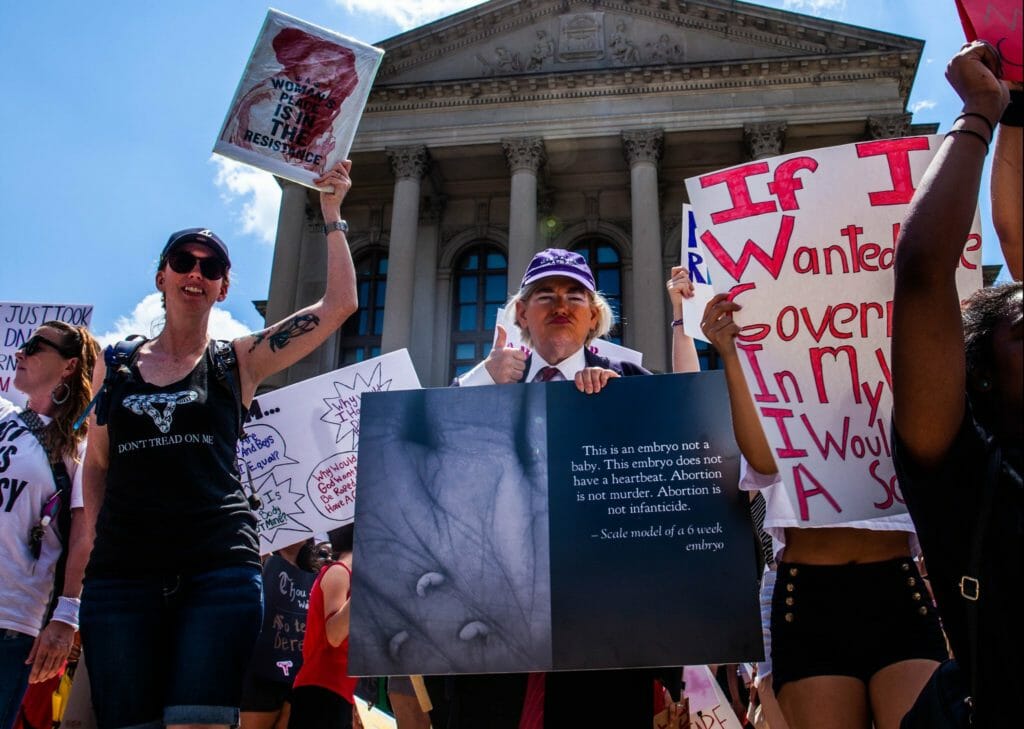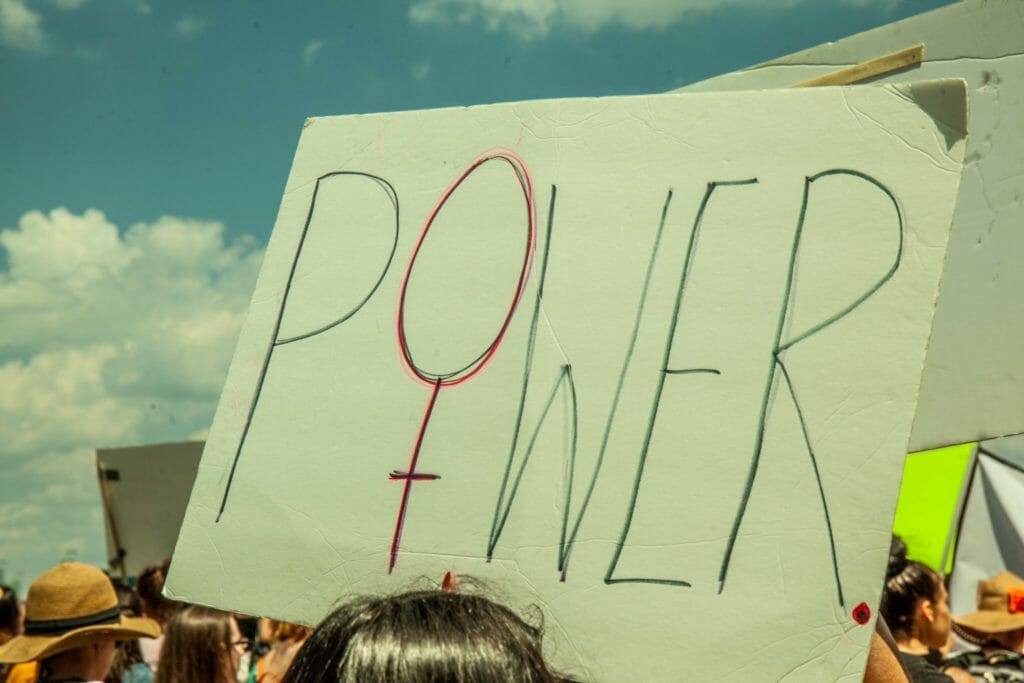This article is co-written by Miles Jenson and Aja Arnold.
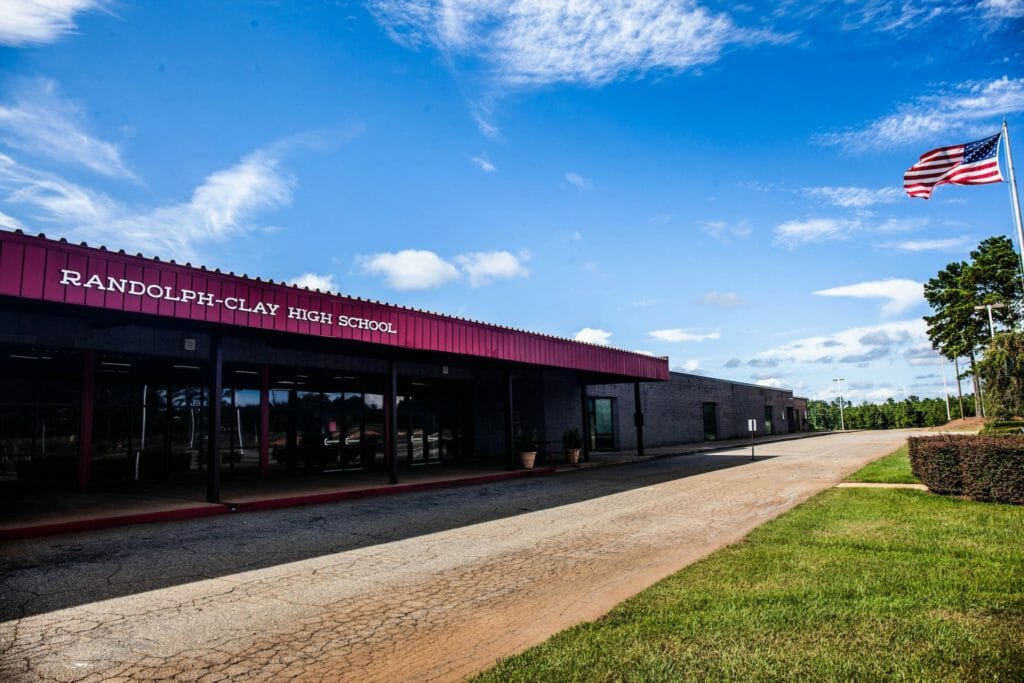
“Nobody wants to talk about it,” a convenience store cashier in Cuthbert, Ga., told us when asked about voting poll consolidations and voter suppression in Randolph County. “Look where we are. We’re in the Deep South.” She was right.
Randolph County, deep in the Southwest pocket of Georgia about two and a half hours outside of Atlanta’s perimeter, is part of Georgia’s House District 151 and has a unique place in Kemp’s voter suppression efforts. Randolph is the only majority-minority county (meaning minorities constitute the majority of the population—Randolph County is 61% black) in Georgia that has been controlled by the same white male incumbent Republican Gerald Greene for the past 36 years, despite previous prime contenders such as African American and Democrat Joyce Barlow who narrowly lost the race in November 2018. However, the county has historically voted Democrat in every presidential election since 1912, save for four election cycles in 1964, 1968, 1972, and 1984. How is it that a county which votes Democratic in almost every presidential election repeatedly winds up with the same Republican representation on its local level?
Randolph County proves to be a tired battleground for disenfranchisement tactics, as many rural counties in Georgia are. We hear about this kind of oppression all the time, droning in the background of our everyday lives through the same regurgitated headlines in the news. We grew up with it and were taught about these injustices in the past tense in our history books. Yet, we keep adding more chapters.
We visited Randolph County to explore why Kemp has shown particular interest in this county over the years. We figured it’s one thing to report and comment on a story all cozy in our Atlanta bubble, reading about it in the news and then spitballing facts in an article. It’s one thing to imagine what it means when people say it’s one of the poorest counties in Georgia (ranked 100 out of 159 according to 2015 U.S. Census data), that the nearest hospital is a 30-minute drive, that most folks there don’t have transportation. It’s another to visit, get our boots on the ground, and talk to the people that live there.
But here in Randolph County, residents are most adversely affected by the closing of multiple polling locations.
During Georgia’s 2018 gubernatorial election, the Kemp campaign fell under many spotlights of scrutiny and outrage. Major points of contention included the conflict of interest inherent with Kemp running the same election his office was charged with overseeing, along with cybersecurity issues revealing vulnerabilities in Georgia’s online voter registration systems. Then there are the voting machine malfunctions and the illegal voter purges. But here in Randolph County, residents are most adversely affected by the closing of multiple polling locations. When we spoke to a few locals about the newest polling consolidation proposal, it seemed people were unaware, did not have much of an opinion, or were even stunned to be asked about it.
The topic is not as fresh now as it was last year when the Abrams and Kemp gubernatorial race was a hot national news story. According to the convenience store cashier, it comes up in major election cycles, only to be swept back under the rug again. Due to the stealth nature of the polling consolidations’ injustice, it is exposed less vehemently than the stories of cyberterrorism and political hackings that run the fervent circle jerk of inner-city slacktivism. Furthermore, the proposal of these precinct closures were delivered under the guise of saving money—and who doesn’t want that?
The controlled narrative of Randolph County, both inside and outside the county, is a story of high praise for Kemp. On a smaller counter in this convenience store sat two short stacks of newspapers, both a few pages thin, with the front pages featuring Kemp posing with local lawmakers and socialites.
The first newspaper, the Citizen’s Times, proudly stated in its headline, “Gov. Brian Kemp for Southwestern Georgia.” Another, the Southern Tribune, touted itself as “dedicated to community pride, promotion, and progress,” with its front page split into two large Kemp banners, both showcasing the same local bed-and-breakfast’s event held for Kemp. The left headline stated, “Gov. and First Lady Choose Cuthbert,” while the right claimed, “Gov. Brian Kemp dedicated to Southwest Georgia.”
However, “dedicated to” may not be the right phrase. “Domineering in,” perhaps. We asked the cashier if they felt these headlines to be true sentiments. They said no.
Most recently, Kemp\’s heavy hand in steering the elections of rural counties\’ can be felt in the numerous closures of local polling stations. Based on a recent study released by the Leadership Conference on Civil Rights, America has seen over 1,000 poll closures since the gutting of the Voting Rights Act in 2013. Kemp allowed for 214 polling locations to close in Georgia whereas Alabama, Mississippi, North Carolina, and South Carolina closed 215 polling locations combined.
Randolph County is only one prime example. Enter Mike Malone.
According to the Atlanta Journal-Constitution, Malone was recommended by Georgia Elections Director Chris Harvey of the Secretary of State’s office to assist Randolph County in its time of need after its Elections Board Supervisor had resigned in April 2018. He was hired under a consulting contract until a permanent Elections Supervisor could be secured.
Kemp allowed for 214 polling locations to close in Georgia whereas Alabama, Mississippi, North Carolina, and South Carolina closed 215 polling locations combined.
So eyebrows were raised when the man who was hired to enhance citizens’ voting experience under the instruction of Georgia’s top election officials recommended that Randolph County Board of Elections close seven of its nine voting precincts in August 2018, citing A.D.A. compliance issues and low turnout.
The ACLU of Georgia and NAACP\’s Georgia Chapter were quick to act, denouncing the proposal as blatantly discriminatory. In a county where many residents lack reliable transportation, if Malone’s proposal was approved, voters would have had to walk an estimated three and a half hours to get to two of the remaining locations between the towns of Cuthbert and Shellman.
In a letter to Randolph\’s Board of Elections, the ACLU of Georgia Legal Director Sean Young wrote , “Making it harder for Randolph County voters to cast a ballot means making it disproportionately harder for African Americans in the State of Georgia to cast a ballot in this November’s elections. Indeed, the eliminated polling place with the highest registered voter population, Cuthbert Middle School, serves a 96.7% Black population (330 registered voters out of 341 registered voters assigned to the polling place).”
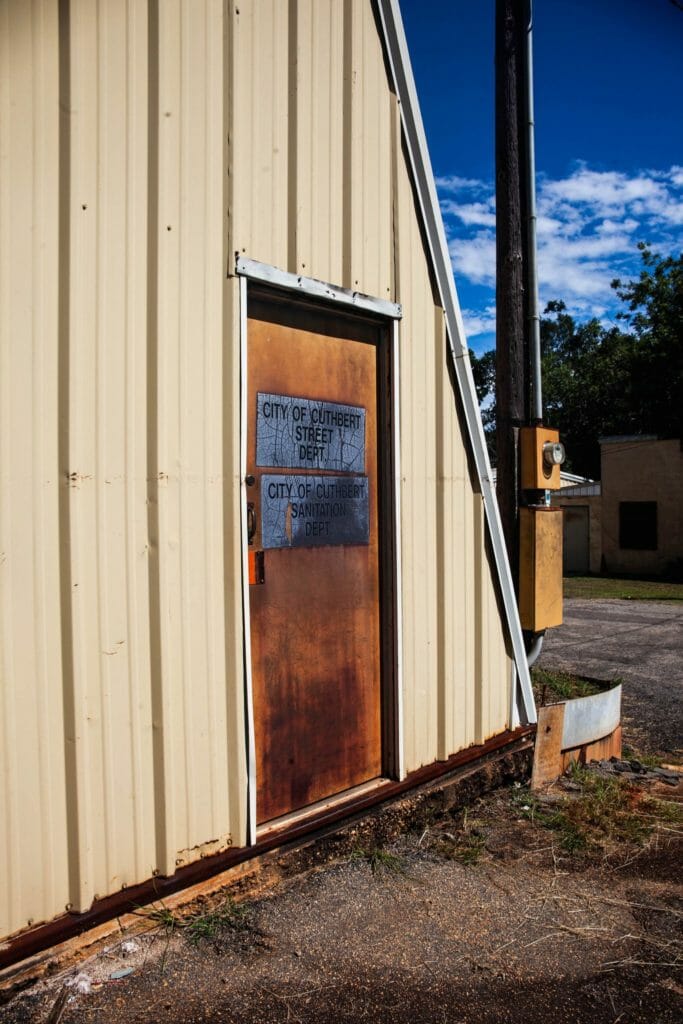
He went on to address transportation inequities in Randolph, noting that “these transportation burdens will also fall disproportionately on African Americans. Randolph County, which is disproportionately African American, has over three times as many people without vehicles as compared to the State of Georgia—22.3% of Randolph County households lack vehicles, as compared to 6.9% of all Georgia households.”
Two days after receiving Young’s letter, Malone claimed publicly in a slide show presentation that, “Consolidation has become highly recommended by the Secretary of State,” with the ACLU of Georgia, Georgia NAACP, and other civil rights groups all present, according to the AJC. Later, Slate Magazine wrote that 10 other Georgia counties with large African American populations followed Malone’s advice and consolidated polling locations.
Under intense criticism, Kemp publicly condemned the polling consolidations. Randolph County fired Malone and the motion to consolidate was unanimously rejected by the county’s Board of Elections on Aug. 20, 2018. This was followed by another proposal to close three of the county’s nine polling locations, which was passed unanimously by the board about a year later on Aug. 19, 2019, earning very little news coverage following the 2018 election cycle.
But, questions still remain. Why was the top elections official, tasked with streamlining and enhancing the voting experience, fixated on closing seven out of nine of Randolph\’s precincts leading up to Election Day during a heated contest between Abrams and Kemp? If disability compliances were a concern, why weren\’t efforts to refurbish the less accessible precincts enacted? And why, in a county whose voting rights were threatened and continue to be threatened, are their newspapers publicly praising the man who sought to deprive said rights?
Randolph is considered a Black Belt county. Through the mechanization of agriculture, deliberate oppression through segregation, Jim Crow, and white-nationalist terrorism, communities in the Black Belt have withstood a sinister deprivation of rights like healthcare, housing, public transportation, and access to quality education, to name a few. This humanitarian crisis persists to this day. White congressmen in majority-minority districts continue to capitalize on personal interests through bastardizing voices of marginalized regions by excluding African Americans from the resources the U.S. prides itself on—including the right to vote.
Everything in Randolph is far apart. Though it operates as one county, the parts of the whole seemingly exist without recognition of one another. The city of Cuthbert, which is the county seat, shows signs of abandonment and negligence, except for local newspapers suggesting otherwise with Kemp smiling and shaking hands at the local B&B. These signs are seen in the states of the government buildings, such as the street and sanitation department with its wooden sign weathered and splintering in front of an unoccupied building. Or in Cuthbert’s public recycling containers tattered and torn by the brutal Southern heat, its coating peeling off the sides. Its old, industrial water tower rusting in front of the Board of Elections office. The grass of the landscape burnt yellow from dehydration and the sun’s bearing.
When we searched for Cuthbert Middle School, which was listed as the county’s largest polling location, we were led to Randolph Clay High School, even though we went to the correct address on Cuthbert Middle’s official (and outdated) website. This is due to the public school consolidation between Randolph County and Clay County, about 26 miles apart—a recent adjustment in which kids are bussed 30 minutes to and from school each day. Commodities like gas stations, grocery stores, and mechanic shops huddle together like survivors on life rafts slowly being swept away from one another, instead of enjoying the fruits of a community wealthy enough to perpetuate them. The city of Cuthbert looks like it’s been forgotten. Because it has been.
Just a 15-minute drive away from Cuthbert resides the town of Shellman, and you can tell where the affluence lies in Randolph County. Recycling containers were shiny with fresh-looking paint and neatly organized. Palm trees lined the unbeaten roads and its water tower adorned by a mural reminiscent of a Florida postcard. Its houses, many painted ivory white and decked with thick columns, were complete with lush front yards freshly mowed and encompassed by white picket fences. The three polling locations up for consolidation this time around are all located in Shellman. Proponents of the proposal argued it should see its way through since it would mostly affect white voters—not black voters. Herein lies the problem of equity, which the Board of Elections doesn’t fully recognize or simply don’t care to acknowledge: no one should experience a burden or major disruption in gaining access to their right to vote. Randolph\’s troubled relationship with recognition is even more so personified in its Board of Elections\’ awareness of poverty.
According to data from the U.S. Census Bureau, Randolph\’s poverty rate is almost double of the state it inhabits: 30.5% versus 16%. It\’s median income is also 40% lower than the rest of Georgia. Couple that with a population that is predominantly black, and you have a marginalized community that needs its voices listened to much more intently amidst the altruism of metro Atlanta caught in the glamour of being the center of a controversial news story during the 2018 governor’s race. But when faced with the dilemma of facilitating power to the powerless, the state\’s elections steward\’s answer was to eviscerate three of the nine spaces where its people could be counted and heard.
In Atlanta, these problems are much less in your face and when they are, you see people doing something about them, up in arms. Think about how easy it is to march to the State Capitol steps and protest beneath our glittering golden dome (you can\’t miss it!). Now, think about walking three and a half hours to vote.
Atlanta\’s cognitive awareness of its backup dancers—the other 150 counties outside the perimeter—leaves much to be desired.
Some of Randolph\’s nine (now six) polling locations’ addresses don\’t register properly on GPS, with limited cell service and little to no accessible WiFi. Imagine the hunt to cast a ballot while traipsing the barren landscape of one of Georgia\’s poorest counties and then being told you were at the wrong location, like the cashier at Randolph’s local convenience store was this past Election Day. She said poll workers pinged her back and forth three times. (Was she intending to vote for Abrams? She said yes.) This is an all-too-common experience for voters in Fulton and DeKalb County, and yet, not nearly the same. What may constitute an eye-roll and an aggravated Facebook post in the perimeter is an experience that’s met with utter defeat in many counties outside of it. While ITP residents can hop in their cars to travel to the next polling location 10-15 minutes away, citizens of Randolph County aren’t graced with that minor set of annoyance.
Atlanta\’s cognitive awareness of its backup dancers—the other 150 counties outside the perimeter—leaves much to be desired. The current dynamic in play is a simulation of outrage, or maybe an inflation of care only after the city\’s bubble is penetrated. Of those 159 counties, 18 are majority black. Randolph\’s disproportionate equity in the collective choir of our representatives is sparse and unremarkable until it gains traction through buzzwords, hashtags, or some other untraceable social currency. Randolph is not the only voice silenced on the rafters.
To try and answer the question of why Randolph County has been uniquely placed on Kemp’s radar as a place to continuously dirty his hands—maybe Randolph was just broken enough to get steamrolled by Kemp with no one else noticing. The question is: when is Atlanta going to care?

